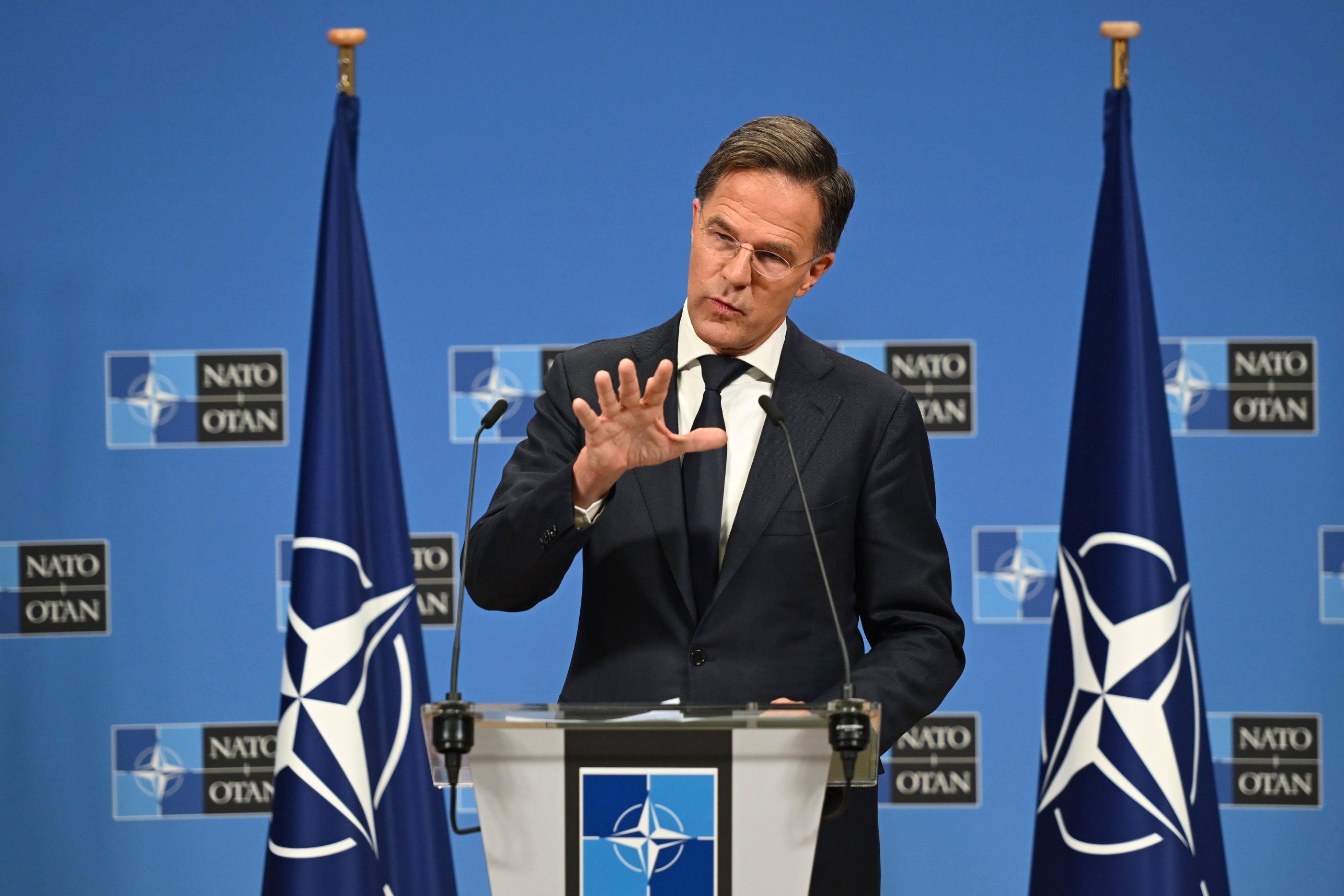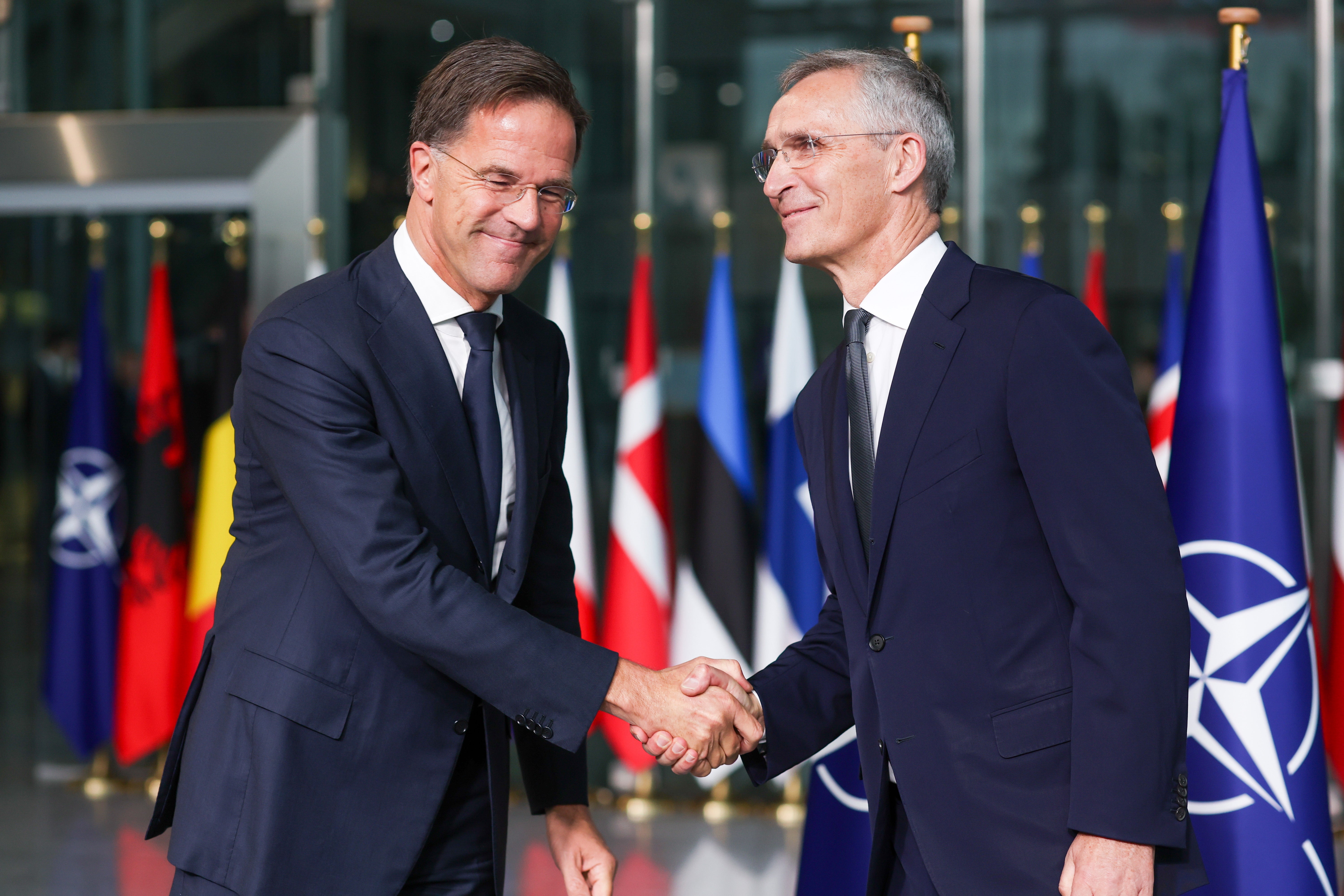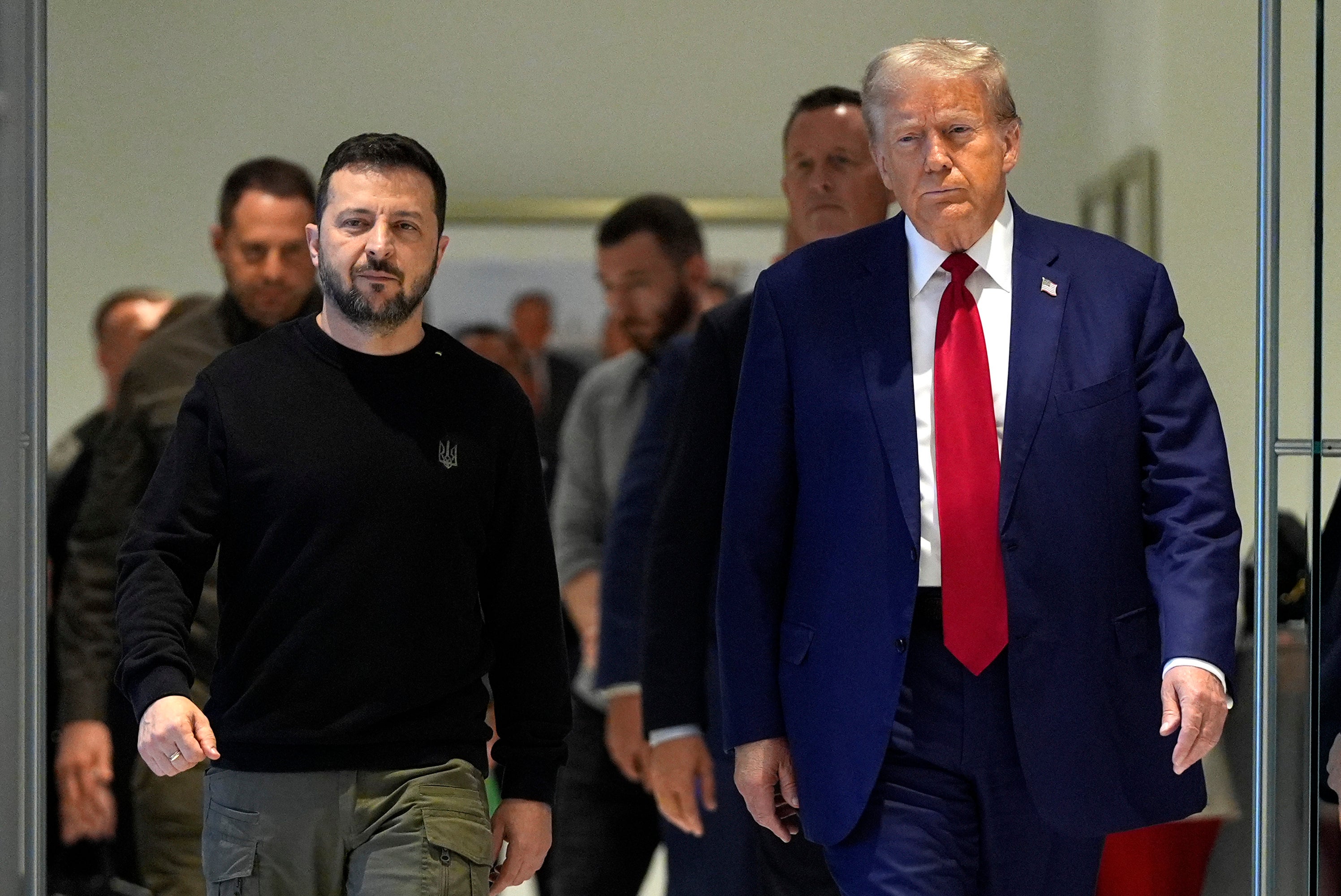Nato’s new chief Mark Rutte makes Ukraine support a top priority
The former Dutch PM also says he will work with whoever wins the US election

Your support helps us to tell the story
From reproductive rights to climate change to Big Tech, The Independent is on the ground when the story is developing. Whether it's investigating the financials of Elon Musk's pro-Trump PAC or producing our latest documentary, 'The A Word', which shines a light on the American women fighting for reproductive rights, we know how important it is to parse out the facts from the messaging.
At such a critical moment in US history, we need reporters on the ground. Your donation allows us to keep sending journalists to speak to both sides of the story.
The Independent is trusted by Americans across the entire political spectrum. And unlike many other quality news outlets, we choose not to lock Americans out of our reporting and analysis with paywalls. We believe quality journalism should be available to everyone, paid for by those who can afford it.
Your support makes all the difference.The new Nato chief Mark Rutte has vowed to strengthen Western support for war-ravaged Ukraine as he takes charge of the alliance.
The former Dutch prime minister officially replaced Jens Stoltenberg on Tuesday as Nato secretary general after his predecessor spent a decade in the job.
Mr Rutte’s appointment comes at an important time for Nato, with the US election just weeks away, he will soon be working with a new president.
The secretary general said during a press conference on Tuesday that he could work with either Donald Trump or Kamala Harris and appreciates that Ukraine will be his top priority.
Mr Rutte, 57, was prime minister of the Netherlands until he stepped down earlier this year following the collapse of his coalition government in 2023. In June he was appointed to the Nato role.
“We have to make sure that Ukraine prevails as a sovereign, independent, democratic nation,” Mr Rutte said at Nato’s headquarters in Brussels, Belgium.
“The cost of supporting Ukraine is far, far lower than the cost we would face if we allow Putin to get his way,” Mr Rutte said, a few hours after Mr Stoltenberg handed the reins to him, along with a Viking gavel with which to chair future meetings.

Speaking about the prospect of Mr Trump’s re-election, Mr Rutte added: “I’m not worried. I worked for four years with Donald Trump. He was the one pushing us to spend more on defence and he achieved this.
“Because indeed, at the moment, we are now at a much higher spending level than we were when he took office.”
Speaking about the presidential race in general, Mr Rutte said: “I know both candidates very well.” He also praised Mr Trump for pushing Nato allies to toughen their approach towards China. He then hailed the “fantastic record” of vice-president Harris and described her as “a highly respected leader”.
“I will be able to work with both. Whatever is the outcome of the election,” Mr Rutte said. When pressed about Mr Trump’s commitment to the other allies, he deflected, saying only that both candidates “understand that, in the end, the trans-Atlantic relationship is crucial, not just for Europe”.
One of Mr Rutte’s key tasks will be to persuade Nato members to come up with extra troops, weapons and spending to ensure the goal of improving the alliance’s collective defence is met, say analysts.

“We need to do more in terms of our collective defence and deterrence. We have to invest more and close the capability gaps and try to achieve all the targets Nato has set here,” Mr Rutte said.
He has also urged Europeans to “stop whining” about Mr Trump and get on with boosting the continent’s defences.
The United States is Nato’s predominant power, but the alliance takes decisions by consensus so a big part of the secretary general’s job is forging compromises among the allies.
Mr Stoltenberg, former prime minister of Norway, stepped down as boss of the 32-member alliance after a turbulent decade marked above all by Russia’s 2022 invasion of Ukraine.

Sweden and Finland abandoned long traditions of non-alignment to join Nato’s ranks after Russia invaded Ukraine. The war also prompted Nato to boost its eastern flank with more troops and to radically revamp its defence plans to take the possibility of an attack from Moscow more seriously than at any point since the end of the Cold War.
While Western leaders stress Nato is a defensive alliance, Moscow has long portrayed it as a threat to Russia’s security.
Join our commenting forum
Join thought-provoking conversations, follow other Independent readers and see their replies
0Comments